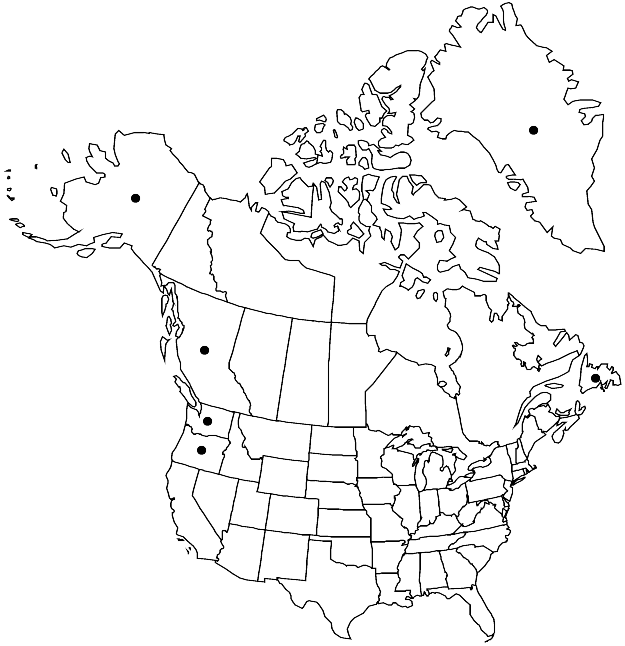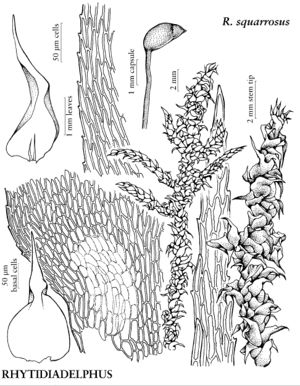Difference between revisions of "Rhytidiadelphus squarrosus"
Krypt.-Fl. Brandenburg 2: 918. 1906.
FNA>Volume Importer |
FNA>Volume Importer |
||
| Line 51: | Line 51: | ||
|publication year=1906 | |publication year=1906 | ||
|special status=Selected by author to be illustrated | |special status=Selected by author to be illustrated | ||
| − | |source xml=https://jpend@bitbucket.org/aafc-mbb/fna-data-curation.git/src/ | + | |source xml=https://jpend@bitbucket.org/aafc-mbb/fna-data-curation.git/src/8f726806613d60c220dc4493de13607dd3150896/coarse_grained_fna_xml/V28/V28_519.xml |
|genus=Rhytidiadelphus | |genus=Rhytidiadelphus | ||
|species=Rhytidiadelphus squarrosus | |species=Rhytidiadelphus squarrosus | ||
Revision as of 17:06, 18 September 2019
Plants to 15 cm, soft. Stems 2–4 mm wide across leafy stem, remotely branched to irregularly pinnate, branches to 1.2 cm. Stem leaves strongly squarrose-recurved, crowded (stem concealed by leaves), ovate, not plicate or rugose, 2.4–4.2 × 1.1–1.9 mm; base subsheathing, rounded to insertion; apex narrowed, acumen long, channeled; costa to 1/3 leaf length; alar cells distinct, shorter, wider than basal cells, walls thin, not porose; medial laminal cells 45–80 × 5–7 µm, smooth. Branch leaves ovate to lanceolate, 1.2–2.3 × 0.4–0.9 mm. Capsule ovoid, 1.2–2.2 mm.
Habitat: Usually near coast on sand, open to partially shaded sites, soil, rock, grassy areas behind beach, salt marsh, sea shelf, headlands, open thickets, forests, grassy disturbed areas, lawns, pastures, golf courses
Elevation: low to moderate elevations (0-300 m)
Distribution

Greenland, B.C., Nfld. and Labr. (Nfld.), Alaska, Oreg., Wash., Eurasia, Atlantic Islands, Pacific Islands (New Zealand), Australia (Tasmania).
Discussion
Selected References
None.
